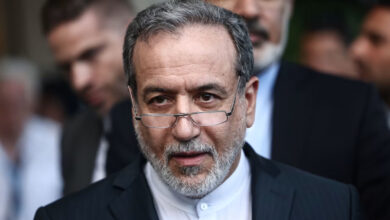An advocacy group has condemned Saudi authorities for blocking Elaph, one of the top-ranking news websites in the Middle East, after the site published cables released by WikiLeaks that were embarrassing for Riyadh.
The Arabic Network for Human Rights Information (ANHR) said on Thursday the "site was blocked without reason and no official department declared its responsibility for this decision."
"Despite the Saudi government's resentment of Elaph’s liberal editorial policy, this resentment was not manifested before [Elaph] posted WikiLeaks documents relevant to Saudi," added the ANHR in a statement.
The website has been blocked in Saudi Arabia since 6 December.
"Blocking could be due to the editorial policy of the website which is so controversial to the Saudi government. Elaph was blocked once by Saudi TRA for allegedly promoting ideas contrary to Islam and defaming Islamic figures. The ban was lifted after some time," the statement said.
The liberal website recently published coverage of controversial issues in Saudi Arabia such as the future of succession in the monarchy after the 86-year-old King Abdullah left the country to undergo surgery.
The website also published content related to the rise of Prince Nayef bin Abdul Aziz, who is the second deputy prime minister and former interior minister.
Over the past two weeks the website run by liberal Saudi journalist Othman al Omair posted news stories about leaked US cables related to the Gulf states.
One document cited Abdullah urging the US to attack Iran's nuclear installations, reportedly advising Washington to "cut off the head of the snake" while there was still time.
Saudi Arabia said it would not comment on the leaked US diplomatic cables as it was unsure of their authenticity.
Other countries have also restricted access to websites that published the cables.
Tunisia blocked the website of the pro-Hizbullah Lebanese daily Al-Akhbar after publishing a US cable describing Tunisian politicians as corrupt.




